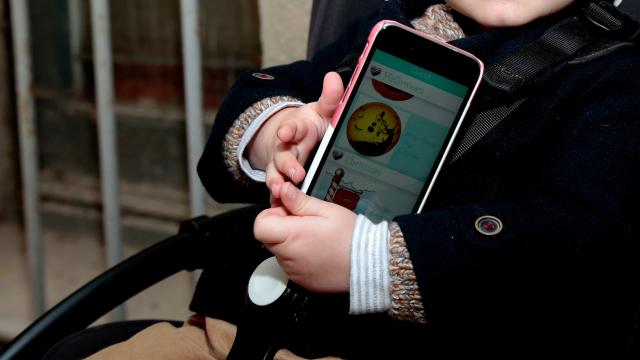The World Health Organisation is coming out strong against letting young kids watch TV or play with smartphones, and is pushing parents to help their kids stay active and get enough sleep.
This week, the global public health agency released its recommendations on the amount of physical activity and sleep children under the age of five should get in order to be as healthy as possible. The recommendations included strict limits on screen time, particularly for those younger than two.
The youngest children should avoid any screen time at all, the WHO says, while kids between two and five can get up to an hour a day, max.
“Improving physical activity, reducing sedentary time and ensuring quality sleep in young children will improve their physical, mental health and wellbeing, and help prevent childhood obesity and associated diseases later in life,” Fiona Bull, program manager for the surveillance and population-based prevention of noncommunicable diseases at WHO, said in a statement announcing the recommendations.
The WHO’s screen-time guidelines are stricter than ones we’ve seen from other public health agencies. In 2016, for instance, the American Academy of Paediatrics recommended that children under 18 months not get any screen time, while children from two to five could get one to two hours a day.
But even these guidelines seemed to reflect a change in thinking around the risks of screen time, with the AAP stressing that the quality of what kids watch (like educational materials versus violent cartoons) or if they are interacting with their parents during screen time are more important factors than the exact amount of time spent watching screens.
Researchers since have argued that even these more flexible guidelines are missing the point, given that some studies have shown no clear link between more screen time and worse health outcomes like depression, anxiety, and insomnia.
The WHO, for its part, sees its guidelines as working to ensure that young kids develop healthy habits as early as possible. For instance, it says that any sedentary time, not just watching screens, should be limited to no more than one hour at a time, and should include reading or storytelling by a caregiver.
With sleep, it recommends that kids ages one to two get 11 to 14 hours a night, while those ages three to four gets 10 to 13 hours a night. Kids over one should also get 180 minutes of physical activity every day, with at least an hour’s worth of moderate-to-intense exercise for those over three.
“What we really need to do is bring back play for children,” Juana Willumsen, WHO focal point for childhood obesity and physical activity, said in a statement. “This is about making the shift from sedentary time to playtime, while protecting sleep. “
